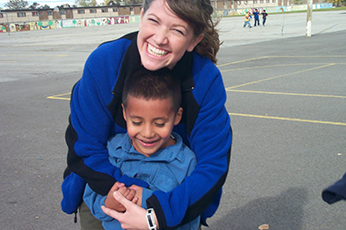
The Individuals with Disabilities Education Act (IDEA) is a federal law ensuring children with disabilities receive education.
Developmental Delays (birth through age 2)
Under the IDEA, “infants and toddlers with disabilities“ are young children who need early intervention services because they are experiencing developmental delays, as measured by appropriate diagnostic instruments and procedures, in one or more areas.
Children and Youth (age 3 through 21)
The IDEA lists 13 disability categories under which 3 through 21-year-olds may receive special education. The disability categories listed in IDEA are: autism, deaf-blindness, emotional disturbance, hearing impairment (including deafness), mental retardation, multiple disabilities, orthopedic impairment, other health impairment, specific learning disability, speech or language impairment, traumatic brain injury, and visual impairment (including blindness) Click on these disabilities to learn more.
A child must meet all of the following to receive special education and related services:
- Are between the ages of 3 and 21 years of age, (birth to age 3 for developmental delays)
- Have one or more of the IDEA identified disabilities
- The disability is such that special education is needed to access education